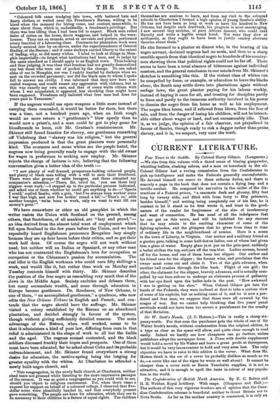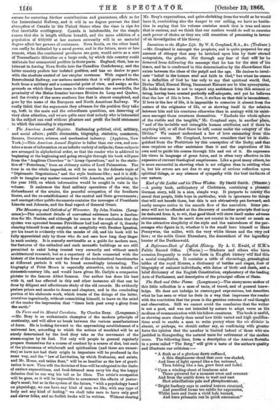The Confederation of British North America. By E. C. Bolton
and H. H. Webber, Royal Artillery. With maps. (Chapman and Hall.)— The authors of this vary vigorous brochure are of opinion that the Cana- dian Confederation scheme is beneficial neither to Groat Britain nor to Nova Scotia. As far as the mother country is concerned, it is only an excuse for extorting further contributions and guarantees, sdch as for the Intercolonial Railway, and it will in no degree prevent the final absorption of Canada in the United States when tho time is ripe for that inevitable contingency. Canada is indefensible, for the simple raason that she is length without breadth, and the mere addition of a population of 600,000 at her eastern extremity will in no material degree affect her powers of resistance. Nova Scotia, on the other hand, can easily be defended by a naval power, and in the future, more or less remote, when the continental provinces are gone, would serif:, as a sort Of Transatlantic Gibraltar on a large scale, by which this country could Maintain her commercial position in those parts. England, then, has no interest in forcing Nova Scotia into the Canadian Confederacy, and the latter Country prefers her isolated position, and has no desire to part with the absolute control of her surplus' revenues. With regard to the Intercolonial Railway, our authors maintain that it will prove a failure, both from a military and a commercial point of view, and assign as the grounds on which they have come to this conclusion the snowdrifts, the proximity-of the Maine frontier between Rividre du Loup and Quebec, and the rivalry of the more southern line that is almost completed, and goes by the name of the European and North American Railway. We really think that the arguments they advance for the position they take up, both in the main and the subordinate questions, are deserving of very close attention, and we are quite sure that nobody who isinterested in the Subject can read without plettettre and profit the lucid statement in which the reasonitig is expressed.































 Previous page
Previous page